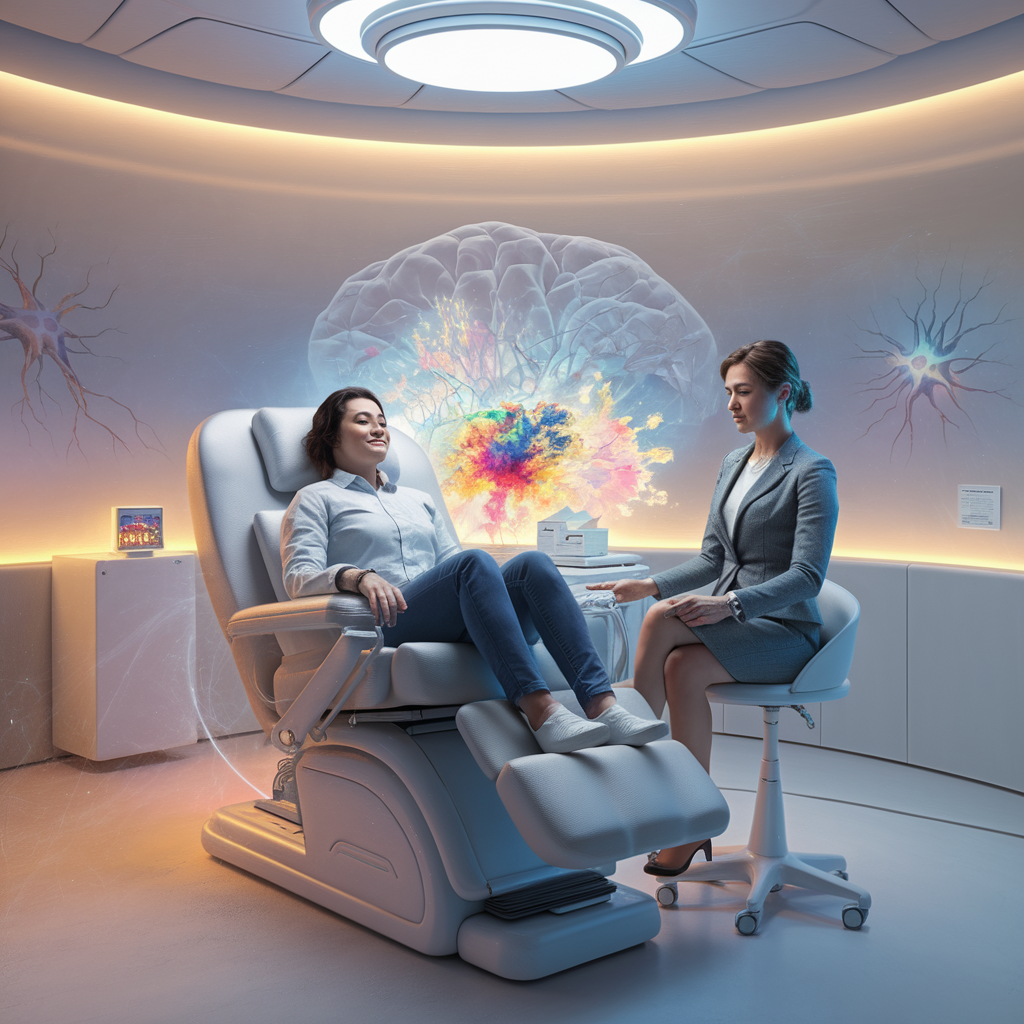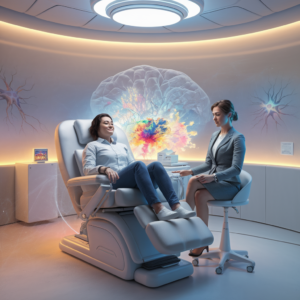New Mexico’s Medical Psilocybin Act establishes a regulated framework for psychedelic-assisted therapy, prioritizing mental health innovation, patient access, and scientific research.

New Mexico has long been a battleground for progressive drug policy, and the introduction of the Medical Psilocybin Act marks a pivotal shift in the way the state approaches mental health treatment. This legislation is designed to establish a regulated framework for medical psilocybin therapy, allowing patients with qualifying conditions to access supervised treatment with psilocybin—the psychoactive compound found in certain species of mushrooms.
While the use of psychedelics in medical settings isn’t a new concept, this act positions New Mexico among a small but growing number of states embracing psilocybin’s therapeutic potential. By prioritizing research, safety, and accessibility, the act aims to lay the groundwork for a treatment model that could redefine mental healthcare.
Key Provisions of the Medical Psilocybin Act
Legalization and Access
At its core, the Medical Psilocybin Act legalizes the supervised use of medical psilocybin for patients diagnosed with specific conditions. Unlike recreational decriminalization efforts seen in other jurisdictions, this act strictly regulates psilocybin’s use within clinical settings, requiring oversight by licensed professionals.
- Qualifying Conditions: The act specifies a range of mental health conditions that make patients eligible for medical psilocybin therapy, including treatment-resistant depression, post-traumatic stress disorder (PTSD), and certain substance use disorders.
- Process for Accessing Psilocybin Therapy: Patients must obtain a recommendation from a qualified healthcare provider, after which they can enroll in a structured therapy program.
- Role of Licensed Healthcare Providers: Only trained professionals—including psychiatrists, psychotherapists, and other licensed clinicians—will be authorized to administer medical psilocybin in controlled settings.
Structure of Psilocybin Therapy Sessions
The act outlines a structured therapeutic process to ensure patient safety and maximize treatment efficacy.
- Preparation Session: Before undergoing a psilocybin experience, patients must participate in preparatory counseling, where clinicians assess mental readiness, set therapeutic goals, and provide guidance on the experience.
- Administration Session: Under supervision, patients ingest a controlled dose of medical psilocybin in a comfortable clinical environment, with therapists facilitating the session.
- Follow-Up Integration Session: After the session, patients work with their clinicians to process the experience, discuss insights, and integrate any psychological breakthroughs into their daily lives.
Regulatory Framework
To maintain strict oversight, the Medical Psilocybin Act establishes a detailed regulatory structure:
- Licensing Requirements: Psilocybin producers and clinicians must obtain state licenses, ensuring compliance with stringent safety and ethical standards.
- Dosage and Administration Guidelines: Regulations dictate appropriate dosing ranges based on research-backed safety profiles.
- Production and Storage Protocols: Licensed facilities must follow rigorous procedures for growing, extracting, and storing medical psilocybin to prevent contamination or misuse.
- Training for Clinicians: Healthcare professionals must complete specialized training in psychedelic-assisted therapy before being authorized to administer medical psilocybin.
Advisory Board and Oversight
Medical Psilocybin Advisory Board
The act establishes a dedicated advisory board responsible for overseeing the rollout and ongoing management of medical psilocybin therapy.
- Composition and Responsibilities: The board consists of medical professionals, researchers, and policymakers who monitor program efficacy and propose regulatory adjustments as needed.
- Review of Qualifying Conditions: As research evolves, the board can expand the list of eligible conditions to include new psychiatric and neurological disorders.
- Evaluation of External Petitions: Researchers and advocacy groups can submit petitions to modify regulations or request funding for new studies.
Funding and Research Support
To ensure equitable access and ongoing scientific exploration, the act allocates resources through two primary funding mechanisms:
- Medical Psilocybin Treatment Equity Fund: Provides financial assistance to low-income patients seeking psilocybin therapy.
- Medical Psilocybin Research Fund: Funds clinical studies, ensuring New Mexico remains at the forefront of psychedelic-assisted therapy research.
Implementation and Timeline
Phases of Implementation
The rollout of medical psilocybin therapy will take place in carefully planned stages:
- Initial Planning and Advisory Committee Formation: Establishing regulatory frameworks and training protocols.
- Development of Clinical Guidelines and Provider Training Programs: Ensuring a standardized, evidence-based approach to psilocybin therapy.
- Rollout of Therapy Services: State-approved clinics begin administering medical psilocybin under strict supervision.
Projected Timeline
The act sets a target deadline of December 31, 2027, for full implementation, with key milestones leading up to statewide availability.
Potential Impact and Benefits
Mental Health and Substance Use Treatment
Psilocybin-assisted therapy has shown promise in treating severe mental health conditions that often resist conventional treatments. The act provides new hope for individuals struggling with:
- Treatment-Resistant Depression: Research suggests that medical psilocybin can produce lasting improvements in mood disorders.
- PTSD: Particularly relevant for veterans and trauma survivors, psilocybin therapy has demonstrated potential for addressing deeply ingrained emotional trauma.
- Substance Use Disorders: Studies indicate that medical psilocybin can help curb addiction to alcohol, opioids, and tobacco by facilitating profound psychological insights.
- End-of-Life Care: Psilocybin therapy has been shown to reduce end-of-life anxiety, offering comfort to terminally ill patients.
Accessibility for Veterans and Underserved Populations
The act prioritizes ensuring that vulnerable populations—including veterans and low-income patients—can access medical psilocybin therapy. Through funding initiatives and affordability programs, the state aims to reduce financial barriers to treatment.
Comparison to Other Psychedelic and Cannabis Therapies
While often compared to medical marijuana, psilocybin therapy operates on a different therapeutic model. Unlike cannabis, which can be used on an ongoing basis, medical psilocybin is administered in structured sessions designed to facilitate long-term psychological breakthroughs.
Challenges and Considerations
Funding and Financial Sustainability
Despite promising benefits, securing adequate funding remains a key challenge. Long-term viability will depend on a combination of state support, private investment, and insurance reimbursement models.
Equity and Accessibility Concerns
Ensuring fair access to medical psilocybin therapy means addressing logistical barriers such as geographic availability, affordability, and cultural stigmas surrounding psychedelic treatments.
Legal and Regulatory Challenges
- Federal vs. State Conflicts: Although New Mexico is pushing forward, psilocybin remains a Schedule I substance under federal law, creating legal gray areas.
- Potential Legal Challenges: Opponents may attempt to obstruct implementation through legal action, citing safety concerns or regulatory conflicts.
New Mexico’s Medical Psilocybin Act represents a major step forward in the evolving field of psychedelic-assisted therapy. By establishing a carefully regulated framework for medical psilocybin treatment, the state is prioritizing mental health innovation, evidence-based research, and patient access.
As implementation progresses, stakeholders—including policymakers, healthcare providers, and advocates—must work together to address regulatory hurdles, funding gaps, and equity concerns. If successful, New Mexico’s model could serve as a blueprint for other states considering similar legislation, positioning the state at the forefront of a new era in mental health treatment.
***
GreenPharms is more than just a dispensary. We are a family-owned and operated company that cultivates, processes, and sells high-quality cannabis products in Arizona. Whether you are looking for medical or recreational marijuana, we have something for everyone. From flower, edibles, concentrates, and topicals, to accessories, apparel, and education, we offer a wide range of marijuana strains, products and services to suit your needs and preferences. Our friendly and knowledgeable staff are always ready to assist you and answer any questions you may have. Visit our dispensaries in Mesa and Flagstaff, or shop online and get your order delivered to your door. At GreenPharms, we are cultivating a different kind of care.






